Think of the Fiji islands and you’ll rightly imagine a South Pacific paradise. Our Fiji travel guide tells you what to know about travel costs, local traditions, Fijian food, and getting off the beaten track.
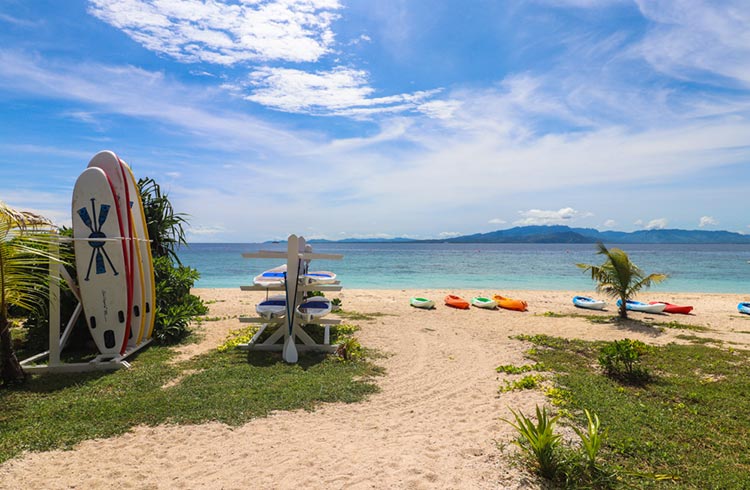 Photo © Chantae Reden
Photo © Chantae Reden
Six years ago, I moved to Fiji planning to stay a year or two. I soon fell in love with Fiji’s landscapes, friendly “Bula!” spirit, colorful marine life, and a lifestyle that lends itself to being part of a community. I have no intention of leaving anytime soon.
Here are seven things to know before you visit Fiji.
- Is Fiji expensive?
- Best time to visit Fiji
- Fiji etiquette
- Kava drinking in Fiji
- Fiji off the beaten track
- How to experience Fijian culture
- Traditional Fijian food
Is Fiji expensive? What to know about Fiji travel costs
Fiji is an expensive country to travel around, especially if you plan on island hopping. While there are plenty of accommodations to choose from on the main island of Viti Levu, options are limited once you reach the outer islands. To find an affordable bed rate, look for backpacker hostels and guesthouses. Some resorts, such as a handful in the Mamanuca and Yasawa Islands, offer an overall upscale experience with dorm room options.
Before you book, factor in the cost of the room, transport, mandatory meal plans, and adventure activities you’ll want to do – such as scuba diving or snorkeling. This will give you a more realistic picture of what you’ll spend, as many accommodations have low room rates but high meal plan and activity rates. It’s worth sticking to a few islands than seeing many at once. Expenses rack up every time you step foot on a boat or plane.
If you’re on one of the larger islands, keep costs down by shopping at local markets where produce and snacks are sold at lower prices. Taking the bus or even a metered taxi will often be cheaper than hiring transport through your hotel.
Best time to visit Fiji
There’s no truly bad time to visit Fiji. The best weather is from June to September, when skies are sunny and temperatures hover in the high 20ºCs (low 80ºFs). With these months aligning with school holidays, this is also when accommodation prices spike. Fortunately, because resorts are spread out among the islands, you’re unlikely to notice the crowds. If you want nice weather with lower accommodation prices, visit in May or October.
Fiji’s cyclone season runs from November to April, which are also the hottest months of the year. And while it can seem risky to come during cyclone season, most days still bring in pleasant weather.
No matter what time of year you visit, bring reef-safe sunscreen and a rain jacket. It’s not unheard of to have bluebird skies in the morning, and a moody downpour come afternoon. Lightweight, sun protective clothing works well as a wardrobe staple in Fiji – bright colors and tropical patterns encouraged.
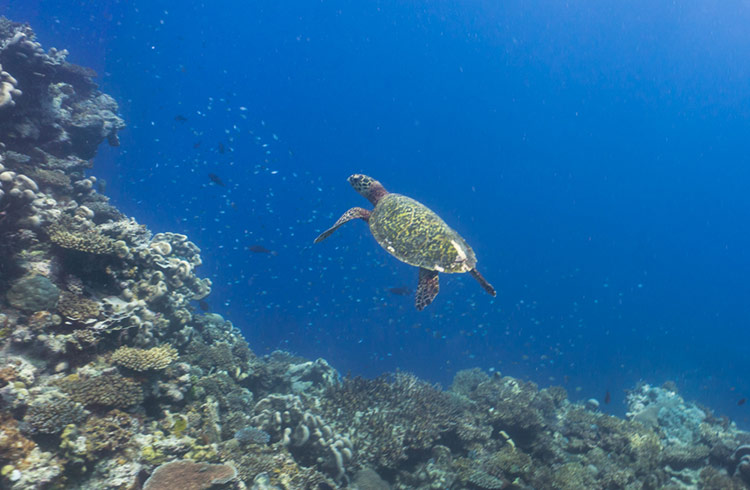
Fiji etiquette: visiting local villages
Whenever you enter a new village, it’s customary to bring a gift and participate in a gift-giving ceremony called a sevusevu. Walking into an unknown village without a sevusevu is often seen as disrespectful. A bundle of yaqona, pepper root that is pounded into kava, is well-received, and you can purchase it at most major markets. The head of the village, called the Turaga ni Koro, and other community members may share kava with you as a welcome into the community.
Bringing a sevusevu often lets you explore the village’s surrounding areas. Don’t be surprised if you’re invited to a church service, someone’s home for tea, or the school for a tour. If you travel to a village with a guide, they’ll likely sort out all logistics for your arrival.
When you enter a village, avoid wearing anything on your head – no hats or sunglasses allowed. Hold your backpacks in your hand rather than on your back. For both men and women, it’s polite to wear a sulu, or sarong, whenever you’re on village property.
Drinking kava in Fiji
Kava, a relaxing, earthy drink made from ground pepper root, is Fiji’s drink of choice. After two bilos (coconut shell bowls), your lips might start to tingle. After three or four, you’ll feel like you’ve arrived on island time.
Drinking kava with others goes well beyond the drink itself – the act of it is steeped in Fijian tradition and there are a few etiquette points to follow whenever you’re seated around a tanoa, a wooden bowl. Kava is served everywhere from work functions to ceremonies to sporting events to backyard barbecues. Communities often resolve problems over a bowl of kava, rather than through formal routes or emails.
The leader of the group will be seated at the ‘head’ of the bowl and typically served first. When you’re served a bilo, clap and drink the entire coconut shell in one go. Many communities consider it polite to receive and hand back the bilo with both hands. Once you’re done, clap and say “Bula!” – a nod to good health. If you can, drink the full bilo the first time it’s offered. Feel free to politely skip subsequent rounds or ask for “low tide,” a small portion. When in doubt, a big smile and a hearty “Bula” will carry you through any social situation.
Fiji off the beaten track: other islands to visit
It might seem like Denarau is the best region to visit as it’s where you’ll find most of Fiji’s large resorts. However, it lacks the postcard-perfect beaches you might’ve come for, and you’re somewhat detached from Fijian culture. Some travelers trail along Viti Levu’s Coral Coast. Others will jet off to the Mamanuca and Yasawa Islands. These stops make up the majority of Fiji’s tourist trail.
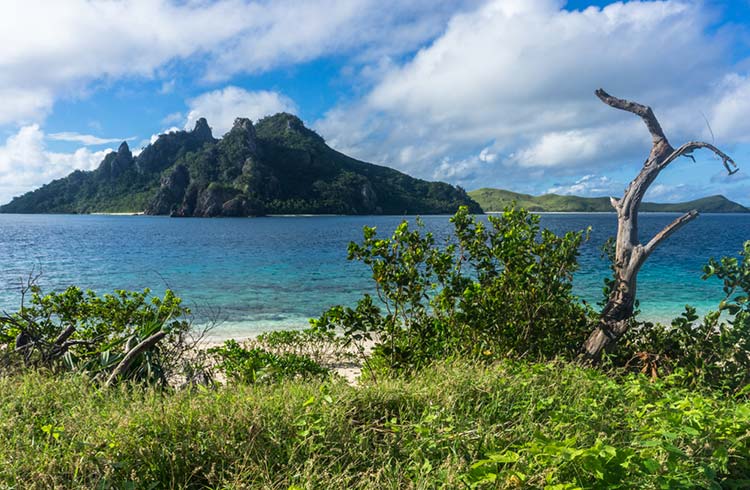
However, if you’re looking for an experience where drinking kava and dancing is more of a way of life than a performance, head to Fiji’s outer islands or into Viti Levu’s interior. Taveuni, Fiji’s so-called “Garden Island” offers waterfall hikes and world-class scuba diving. Ovalau is home to Fiji’s old capital, Levuka, and villages where locals are happy to teach you about Fiji’s history. For incredible snorkeling and scuba diving, venture towards Kadavu, an emerald island surrounded by the Great Astrolabe Reef. To see the most remote islands in Fiji, take a cruise to the Lau Archipelago. What it lacks in accommodations and airport strips, it makes up for in natural beauty and Fijian hospitality.
Local operators such as Finding Islands Tours can arrange an overnight stay in a village as well as off-the-beaten-path hikes, camping trips, and boat trips. No two trips are exactly alike.
How to experience Fijian culture
Fiji is one of the few places in the world where it feels like magic still exists. On the island of Beqa, you’ll have a chance to see Fiji’s traditional firewalkers. Instead of someone trotting across hot coals as you might’ve seen in a street performance, stones are placed in a fire pit for hours. Men then perform a ceremony and walk across stones so hot you can feel the heat radiating from them even from a distance. This skill has been passed down through generations. Legend says it was given to Beqa after a Fijian warrior freed a spirit god that lived within an eel. In return the spirit god gave the warrior the power to walk without being burned.
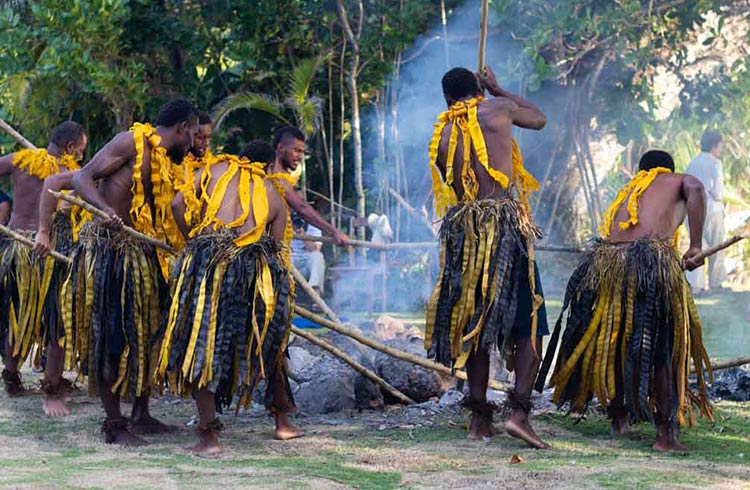
If you get the chance, attend a meke, a performance of song and dance. Performers drape themselves in bark cloth painted in Fijian patterns, called tapa, and tell stories through movement. This is also an opportunity to see Fiji’s traditional weaponry – wooden clubs, spears, and fire tools add to the excitement of each song.
As Fiji is a culture founded by the world’s best seafarers, visit the Fiji Museum in Suva to learn about the art of ancient sailing. There, you’ll find a replica drua, a traditional sailing canoe, that once crossed the South Pacific. The Uto Ni Yalo is a 72-foot sailing canoe that still cruises through Fiji’s waters and occasionally offers sailing tours for visitors.
Traditional Fijian food
On my first trip to Fiji, I wasn’t surprised to find heaps of fresh tropical fruits sold at the markets. Pineapples, papayas, mangoes, bananas, soursops, and more are ubiquitous around the islands depending on the season.
However, I was surprised to discover just how varied Fijian cuisine can be. Enjoy refreshing coconut shells filled with kokoda, fresh fish marinated in lime juice and served with coconut milk, cucumber, onion, and tomato. A local spinach dish, called pulasami, is made with bundles of taro leaves cooked with coconut and onion in an underground oven called a lovo. This lovo is also used to cook meat and seafood – firing it up typically calls for celebration. Salads made from sea grapes (nama) and small fern leaves (ota) drizzled in lime juice and coconut milk are the perfect after-sun snack.
According to a recent census, nearly 33% of Fiji’s population is of Indian descent. This means you’ll find tasty Indian-Fijian fare all throughout Fiji’s major cities of Nadi, Suva, Lautoka, and Labasa. Bus stations and markets sell delicious roti parcels stuffed with spiced curry for around USD $1. One dish you can’t miss? Jackfruit curry made with jackfruit, onion, garlic, turmeric, curry powder, chili powder, cumin, and a dash of decadent coconut cream.
World Nomads travel insurance plans offer cover for more than 150 adventure sports and activities, including hiking, kayaking, scuba diving, and sailing. Find out more.
Related articles
Simple and flexible travel insurance
You can buy at home or while traveling, and claim online from anywhere in the world. With 150+ adventure activities covered and 24/7 emergency assistance.
Get a quote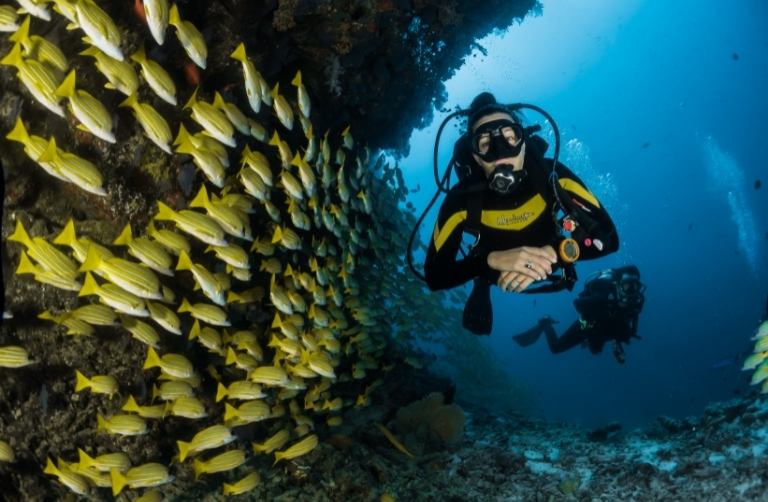
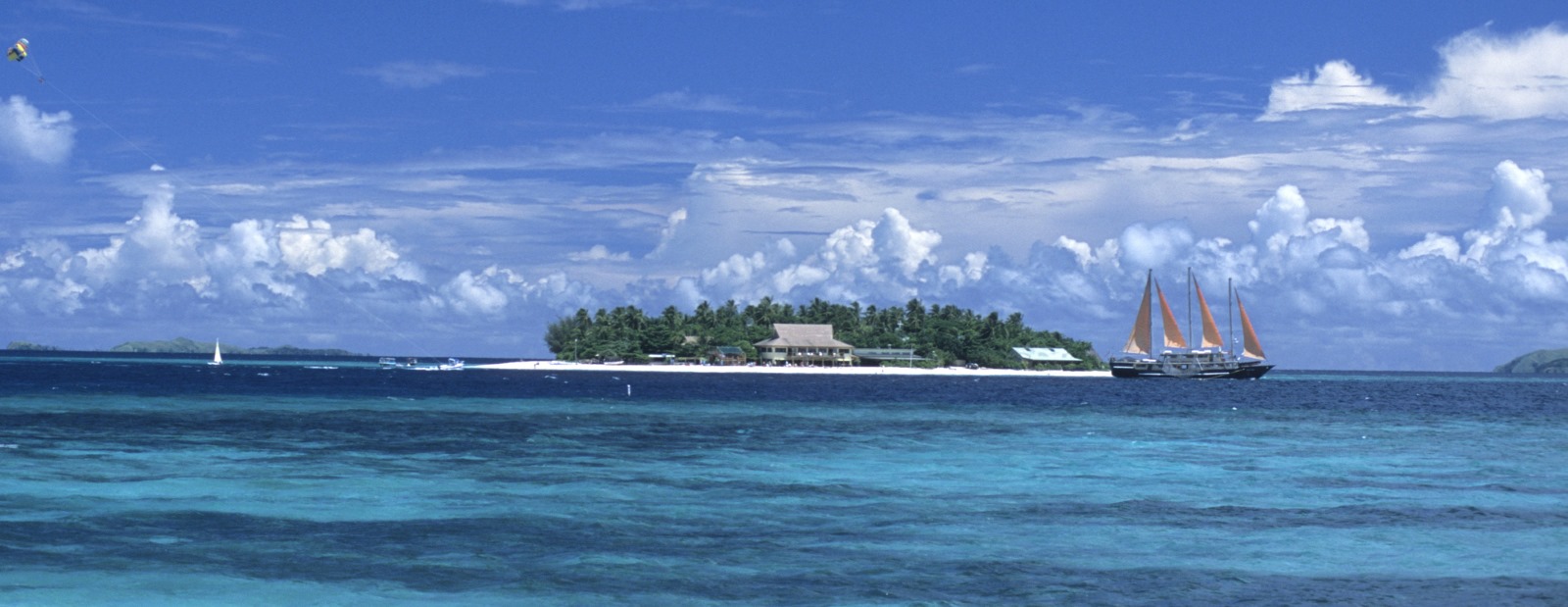
19 Comments
Previously we have purchased wine casks from the shopping centre on Denarau Island. Are wine casks still available?
When you stayed at the dorm bedroom at one of the more upscale resorts, which place was it? I'm looking to book just a couple days in Fiji
I will be traveling to Fiji by myself. What is the best time of the year for me to come, how long a stay should I plan on? I don't want to stay at an all-inclusive high dollar resort. I am a NAUI certified diver and want to fish and dive. Any input would be appreciated.
I M visiting Fiji in January 26. Please advise where to go and visit places. Also where to stay in reasonable price. Is halal food available everywhere.
@stan summer is wet and can be windy , had 2 cyclones already since xmas! winter is greyer less heavy
rain but maybe more drizzle! pot luck really, if you like it hot and steamy then nov to march. location wise
anyhting west of sigatoka will be A LOT dryer normally than the suva side, same goes for other islands west side is always dryer. basically pick the reef you want dive and just get local transport there, buses are cheap as are the minibuses (crasy drivers though!) for example suva to nadi should cost about $17 FJD just pro rata it from that, hitching is easy just stand and wave , if it stops get in. normal to offer the bus fare as payment. you'll have to rent dive gear gas or get a tour with one of the dive companies. accomdation depends on if you like it rough :-) any village will put you up for a few dollars but be carefull of your gear sticky fingers are very common, almost certainly they take you dishing as well .. hotels , resorts etc would be more exspensive prob 30+ a night at least. maybe over 100 most places allow walk ins. travel light and stay local experience the real fiji no the resort plastic. :-) take a sevu sevu ( kava is best cigarettes work to most places. be friendly and smile people will love you. just dont lend anything as you wont see it again . oh a note on taxis , they are all registered to a location , eg you get suva taxis, nadi taxis lautoka taxis etc. so if you see a taxi from nadi in suva , he cant charge you on the meter to go to nadi!!! its called a return fare , hes on his return 'home' so its $5 !!! could be you and 6 other people in the taxi mind but who cares. same for any taxi on its way 'home'.
I am very interested in visiting Fiji Island.
I would be very glad to have information about cheap but good guest houses, hostels, tourist sites and good restaurants.
Also to know about their business and industrial communities and how to book for Cruises to New Zealand and Australia.
Would also be glad to know about Cruise organizers and their contacts.
Thank you.
Appreciate to be informed the quotations of budget lodges like a single bed from mid-Oct. to mid-Sept. and ferry from New Zealand etc,. Thanks for your hospitality !!!
Oh, thanks of this guide and I didn't know about the sevusevu. according to you what could be the best gift I should give?
It is so beautiful and that is very helpful to my work..
Hey Chantae! We just wanted to post the video you did with ExpatsEverywhere on here for all of your readers to see you talking about life in Fiji. This article is a great read and you gave such amazing comprehensive information in your video. We want to share it with everyone! https://youtu.be/jM1xaHAxYd8
I would like to travel to Figi next August by myself.... any tips would be appreciated... I just want to see the landscape and take in the beauty
Please give me examples of what you speak of. Government stings? School licensing?
For females traveling alone in Fiji: DO NOT hang out with the local men! If a woman invites you to her home, go if you wish, but do not accept invites from men! Dress conservatively if you are in town (not on the beach). Drunk Fijian men are to be avoided at all cost! I lived in Fiji for 2 years, and know that the people can be very warm and friendly, but you should not be out after dark (as a female). No walking on the beach after dark, even with a friend. Spending time with church or school groups is great.
Yes, a totally corrupt country - totally- ruled by two men who take their orders direct from Satan! The government scam stings are elaborate and sophisticated and I echo John's advice, trust NO ONE (especially lawyers, judges, or the police). Do not fight the government, or anyone connected with it - you will lose and lose a lot of money in the process. May they all go to hell where they deserve to be for what they are doing to visitors.
When peole come to visit me, they never bring gifts.
Instead of calling them gifts why not just say payment, as that's what it really is.
Your paying them to see something, as a gift is generally given by free will, and if you don't give a gift it could be classed as trespass, then it is not a gift but a payment.
Need tourist packages to visit Fiji island and the entry permit.
Await your fast response
Best regards
Amoo
Sensational post. I learned a few of these lessons during my 4 months in Savusavu.
I am planing to visit Fiji alone in november would you please suggest a lodge, or hostel not expensive i dont want an all inclusive resort. thank you in advance for the information.
Hi, I am looking at Fiji for my 60th in November with my family. 6 adults in total. Suggestions where to stay would be appreciated.
Thanks.